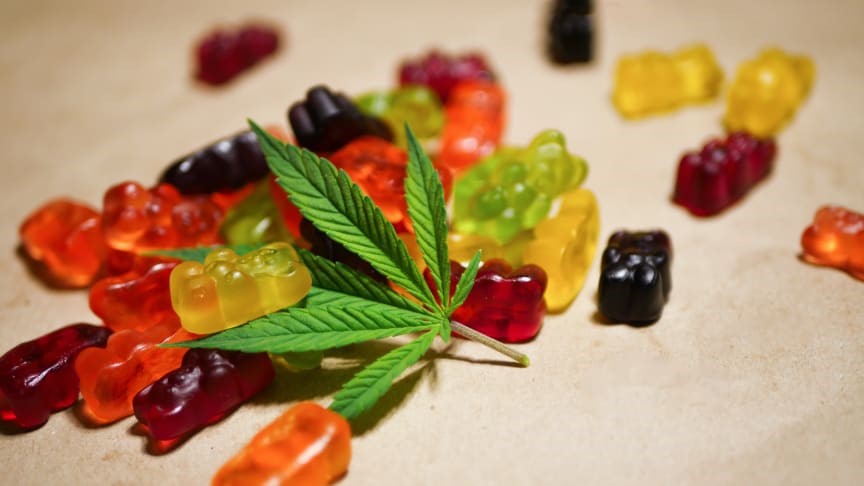Feeding your newborn is a top priority for every new mom, and if you’re breastfeeding, you may have questions about ensuring a healthy milk supply. In this article, we’ll delve into the world of eating right for breastmilk production and provide the information you need to support your body’s natural milk-making capabilities.
A well-balanced diet is essential for maintaining a healthy milk supply. But what foods should you focus on? And what should you avoid? We’ll explore the best foods to eat, such as leafy greens, whole grains, and lean proteins, and we’ll also touch on the importance of staying hydrated.
Additionally, we’ll debunk the myth that certain foods, like spicy dishes or cabbage, can enhance milk supply. You’ll learn the truth about these common misconceptions and discover what you can do to optimize your breastmilk production.
So, if you’re a new mom looking to provide the best nutrition for your baby, keep reading! We’ll guide you through the essentials of eating right for breastmilk production and empower you to make informed choices about your diet.
The Importance Of Nutrition For Breastfeeding Moms
Proper nutrition is crucial for breastfeeding moms. It supports your health and ensures your baby receives all the essential nutrients through breast milk. Breastfeeding requires extra calories, so it’s crucial to consume a well-balanced diet that includes a variety of food groups.
First and foremost, focus on consuming various fruits and vegetables rich in vitamins, minerals, and antioxidants. Leafy greens like spinach and kale are particularly beneficial as they are high in iron, calcium, and vitamin C. These nutrients are essential for your overall health and for the quality and quantity of your breast milk.
In addition to fruits and vegetables, include whole grains in your diet. Whole grains like oats, quinoa, and brown rice provide complex carbohydrates, fiber, and essential vitamins and minerals. These foods can help increase your energy levels and support your milk production.
Lastly, remember lean proteins. Foods such as chicken, fish, beans, and lentils are excellent protein sources, which are essential for your and your baby’s growth and development. Aim to include protein in every meal to maintain a healthy milk supply.
How Diet Affects Breastmilk Production
Now that we understand the importance of breastfeeding moms, let’s explore how your diet can affect breast milk production. The composition of breastmilk is influenced by the nutrients you consume, so it’s crucial to provide your body with the right ingredients to produce high-quality milk.
One critical factor affecting breast milk production is calorie intake. Breastfeeding requires additional calories to support your and your baby’s energy demands. It is recommended that breastfeeding moms consume an extra 300-500 calories per day to ensure an adequate milk supply.
Furthermore, certain nutrients have been found to impact breast milk production positively. For example, omega-3 fatty acids found in fatty fish like salmon and sardines have been associated with increased milk supply. Including these foods in your diet can provide essential fatty acids that promote healthy lactation.
Conversely, deficiencies in certain nutrients can affect breast milk production. For instance, low iron levels have been linked to decreased milk supply. To avoid such deficiencies, consuming a well-rounded diet and considering appropriate supplementation is essential.
Essential Nutrients For Breastfeeding Moms
Breastfeeding moms require a wide range of nutrients to support their health and the production of high-quality breast milk. Let’s look at the essential nutrients you must include in your diet.
- Protein: Protein is essential for tissue repair, growth, and the production of enzymes and hormones. Aim to include lean protein sources such as poultry, fish, legumes, and tofu in your meals.
- Iron: Iron is necessary for producing red blood cells and transporting oxygen throughout the body. Good sources of iron include lean meats, dark leafy greens, fortified cereals, and legumes.
- Calcium: Calcium is crucial for maintaining strong bones and teeth. To meet your calcium needs, include dairy products, fortified plant-based milk, leafy greens, and tofu.
- Vitamin D: Vitamin D plays a role in calcium absorption and bone health. Exposure to sunlight and consuming vitamin D-rich foods like fatty fish, egg yolks, and fortified dairy products can help maintain adequate levels.
- Omega-3 Fatty Acids: Omega-3 fatty acids are essential for brain development and can be found in fatty fish, chia seeds, flaxseeds, and walnuts.
- Vitamin B12: Vitamin B12 is essential for producing red blood cells and properly functioning the nervous system. Animal products like meat, fish, eggs, and dairy are good sources of vitamin B12.
By ensuring you consume various foods that provide these essential nutrients, you can support your health and optimize your breast milk production.
Foods To Increase Breastmilk Supply
While no magic food will instantly increase your breast milk supply, certain foods can support lactation. These foods are often called “galactagogues” and are believed to promote milk production. Here are some examples:
- Oats: Oats are a popular galactagogue due to their high fiber content and ability to stabilize blood sugar levels. Enjoy a bowl of oatmeal for breakfast, or include oats in homemade lactation cookies.
- Fenugreek: Fenugreek seeds have long boosted milk supply. They can be consumed as a spice in cooking or taken as a supplement.
- Brewer’s yeast: Brewer’s yeast is a nutritional supplement rich in B vitamins and minerals. It can be added to smoothies or baked goods to increase milk production.
- Fennel: Fennel has traditionally been used to increase milk supply. It can be consumed as tea or added to dishes for flavor and potential lactation support.
It’s important to note that the effectiveness of these foods as galactagogues may vary from person to person. Consulting with a healthcare professional is always best if you have concerns about your milk supply.
Foods To Avoid While Breastfeeding
While it’s essential to incorporate nutritious foods into your diet, there are also certain foods and substances you should avoid or consume in moderation while breastfeeding.
- Alcohol: When you consume alcohol, it enters your breast milk. To avoid exposing your baby to alcohol, it’s recommended to avoid drinking alcohol or limit consumption to an occasional glass of wine, which can be consumed after breastfeeding.
- Caffeine: Excessive caffeine intake can irritate your baby and interfere with sleep. Limit caffeine intake by avoiding or reducing coffee, tea, and energy drinks.
- Spicy Foods: Contrary to popular belief, spicy foods do not impact breast milk production. However, some babies may be more sensitive to certain flavors, so it’s best to observe your baby’s reaction and adjust your diet accordingly.
- Fish High in Mercury: Certain fish, such as sharks, swordfish, and king mackerel, are high in mercury and should be avoided or consumed in limited quantities. Opt for mercury-rich fish, such as salmon, sardines, and trout.
- Allergenic Foods: If you have a family history of food allergies, it may be wise to avoid potentially allergenic foods such as peanuts, tree nuts, shellfish, and dairy products. However, if you have no family history of allergies, there is no need to restrict these foods unless your baby shows signs of an allergic reaction. Consulting with an allergist or considering an allergy test can guide you and your family in navigating dietary choices.
It’s important to note that every baby is different; some may be more sensitive to certain foods than others. Consider your baby’s reactions and consult a healthcare professional with concerns.
Meal Planning For Breastfeeding Moms
Regarding meal planning as a breastfeeding mom, it’s essential to prioritize convenience and nutrition. Here are some tips to help you simplify your meal planning and ensure you’re getting the nutrients you need:
- Prep in advance: Spend some time on the weekends or during the week prepping ingredients or even full meals that can be easily assembled later. This can save you time and ensure you have healthy options readily available.
- Focus on one-pot meals: One-pot meals, such as soups, stews, and casseroles, can be nutritious, easy to prepare, and provide leftovers for multiple meals. They also allow you to incorporate a variety of vegetables, proteins, and whole grains.
- Use slow cookers or instant pots: These kitchen appliances can be a game-changer for busy moms. You can prepare ingredients in the morning and come home to a nutritious meal ready to be enjoyed.
- Include snacks: Snacks are essential to a breastfeeding mom’s diet. Keep healthy snacks, such as fresh fruit, nuts, yogurt, or pre-cut vegetables, on hand when hunger strikes between meals.
Remember, meal planning should be flexible and adaptable to your needs and preferences. Feel free to experiment with new recipes or seek inspiration from online resources and cookbooks.
Healthy Snack Ideas For Breastfeeding Moms
Snacking can be a great way to fuel your body and maintain a steady milk supply throughout the day. Here are some healthy and convenient snack ideas for breastfeeding moms:
- Trail mix: Create your trail mix by combining nuts, seeds, dried fruits, and a sprinkle of dark chocolate for a satisfying and nutrient-dense snack.
- Greek yogurt: Greek yogurt is an excellent source of protein and calcium. Top it with fresh berries and a drizzle of honey for a delicious and nourishing snack.
- Hard-boiled eggs: Hard-boiled eggs are a portable and protein-packed snack. Sprinkle them with a pinch of salt and pepper, or enjoy them with some whole-grain crackers.
- Hummus and veggies: Cut up some crunchy vegetables like carrots, cucumbers, and bell peppers and pair them with a side of hummus for a refreshing and nutritious snack.
- Nut butter and apple slices: Spread your favorite nut butter on apple slices for healthy fats, fiber, and natural sweetness.
- Energy balls: Make a batch of energy balls using ingredients like oats, nut butter, dates, and seeds. They are easy to grab and provide a quick energy boost.
- Cheese and whole-grain crackers: Enjoy a serving of cheese with whole-grain crackers for a satisfying and balanced snack.
Listen to your body’s hunger cues and choose snacks that combine protein, healthy fats, and carbohydrates with satisfying and energize you.
Hydration And Breastfeeding
Staying adequately hydrated is essential for breastfeeding moms as it helps maintain milk volume and supports overall health. When you’re breastfeeding, your body requires additional fluids to produce breastmilk. Here are some tips to ensure you stay hydrated:
- Drink water throughout the day: Keep a water bottle handy and sip on water regularly. Aim to drink at least eight 8-ounce glasses of water daily if thirsty.
- Include hydrating foods: Certain fruits and vegetables have high water content and can improve overall hydration. Watermelon, cucumbers, strawberries, and citrus fruits are excellent choices.
- Limit caffeine: Excessive caffeine intake can have a diuretic effect, leading to increased fluid loss. Be mindful of your coffee, tea, and energy drink consumption, and choose decaffeinated options when possible.
- Pay attention to urine color: Monitor the color of your urine as an indicator of hydration. Clear or pale yellow urine indicates proper hydration, while dark urine may indicate dehydration.
Remember that your fluid needs vary depending on climate, activity level, and individual differences. If you have concerns about your hydration levels, consult a healthcare professional.
Supplements For Breastfeeding Moms
In addition to consuming a well-balanced diet, some breastfeeding moms may benefit from specific supplements to ensure they meet their nutritional needs. Here are some commonly recommended supplements for breastfeeding moms:
- Prenatal or postnatal multivitamins: A prenatal or postnatal multivitamin can help fill nutritional gaps and provide essential vitamins and minerals. Look for a supplement specifically formulated for breastfeeding moms.
- Omega-3 fatty acids: Omega-3 fatty acid supplements, such as fish oil or algae-based supplements, can provide the necessary DHA and EPA to support infant brain development.
- Vitamin D: Breastfeeding moms may require additional vitamin D supplementation, mainly if they have limited sun exposure. Consult with a healthcare professional to determine the appropriate dosage.
- Iron: If you have low iron levels or have been diagnosed with anemia, your healthcare professional may recommend iron supplementation to support your energy levels and overall health.
It’s essential to consult with a healthcare professional before starting any supplements, as individual needs can vary. They can help determine if you have any specific nutrient deficiencies and guide you in choosing the most appropriate supplements.
Conclusion: Taking Care Of Yourself While Breastfeeding
As a new mom, it’s natural to prioritize your baby’s well-being above all else. However, it’s crucial to remember that caring for yourself is equally important, especially regarding breastfeeding. You can optimize your breastmilk production and support your health by focusing on a well-balanced diet, staying adequately hydrated, and considering appropriate supplementation.
Remember, every breastfeeding journey is unique, and there may be challenges. Don’t hesitate to contact healthcare professionals, lactation consultants, or support groups for guidance and support. By nourishing yourself with the right foods, practicing self-care, and seeking support when needed, you are setting yourself up for success in providing the best nutrition for your baby.
So, embrace this particular chapter of motherhood and know you are doing an incredible job. Your dedication to eating right for breastmilk production will undoubtedly contribute to your baby’s growth and well-being.




